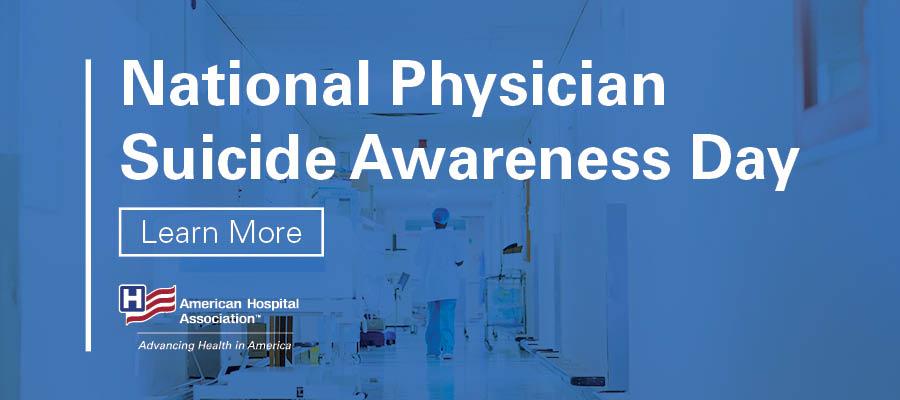Suicide prevention resources available to help physicians

Every day, physicians go above and beyond the call of duty to support the health and wellness of their patients. We all know a doctor who works extra shifts, who stays up late reading medical journals, who goes the extra mile to make sure a patient is receiving the attention they need, and who puts in many extra hours to stay ahead of the demanding requirements of a dynamic health care environment.
Unfortunately, sometimes that means they subjugate their own health needs.
An estimated 400 physicians died by suicide last year. Countless others had serious thoughts of suicide. The rate of suicide among doctors is twice that of the general population, and one of the highest among any profession. Stress, burnout, and trauma all contribute to this devastating toll.
As the nation looks for ways to lower rates of suicide overall, we also must address the critical issue of suicide among physicians and focus attention on caring for the caregivers.
This month, the American Hospital Association’s Physician Alliance and Education Development Center have partnered to create a podcast series that aims to shed light on the issue of physician suicide. There are no quick ways to address this crisis. But in giving physicians a platform to share their knowledge, stories of recovery, and ideas for supporting their colleagues who are struggling with thoughts of suicide, we hope to spark a conversation that saves lives and advances the dialogue around physician suicide in health care settings around the nation.
In the first podcast, Michael Myers, M.D., discusses the causes of physician suicide, sharing how input from family members and an understanding of physician traits such as perfectionism shed light on the tragedy of physician suicide. Myers is the author of eight books, including Why Physicians Die by Suicide: Lessons Learned from Their Families and Others Who Cared.
Next, Michael Weinstein, M.D., shares his personal struggle to practice medicine while battling depression and thoughts of suicide. Weinstein’s story is heart wrenching — but ultimately a profound journey of hope and recovery, and provides a needed window into the experiences of physicians who struggle with mental illness.
Finally, Heather Farley, M.D., discusses what hospitals can do to promote connectedness and well-being among physicians. She notes that the repetitive trauma of practicing medicine can often cause physicians to lose the joy that inspired them to pursue the field, and speaks openly about some of the isolation she felt at different points in her medical career. Farley is now the chief wellness officer for Christiana Care’s Center for Provider Wellbeing.
We hope that these candid interviews presented during Suicide Prevention Month and the Second National Physician Suicide Awareness Day can serve as a starting point for real conversations about suicide and mental health within the medical community. Only through collective conversation, and dedicated action, can we begin to help the physicians who care for us better access the help that they often need.
The AHA’s Physician Alliance has gathered resources for hospitals and their teams to address the issue of burnout and fostering well-being, including a well-being playbook to guide the work. EDC’s Suicide Prevention Resource Center provides technical assistance, training, and materials to increase the knowledge and expertise of professionals serving people at risk of suicide.

